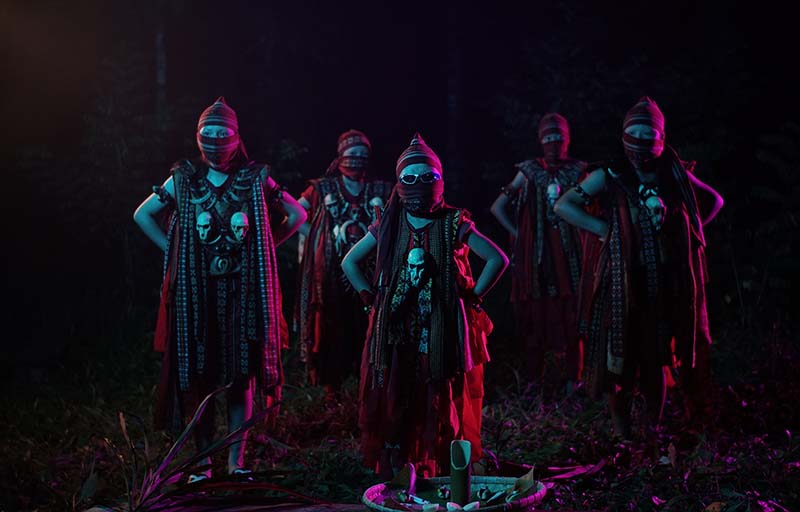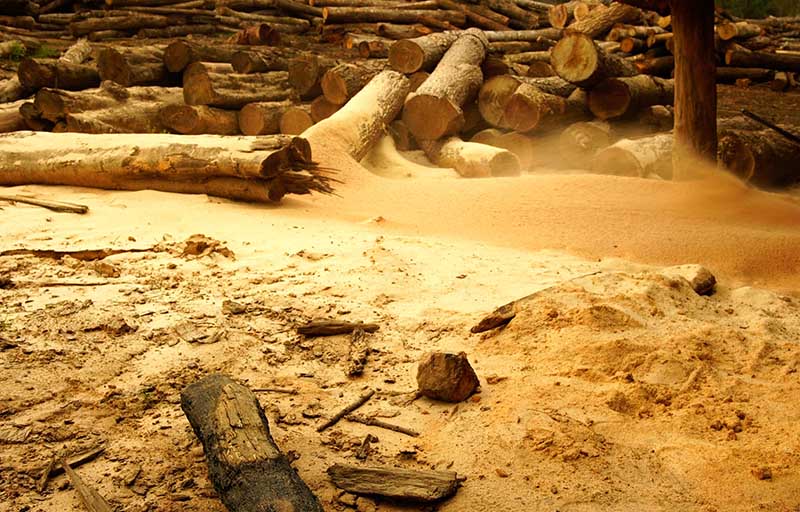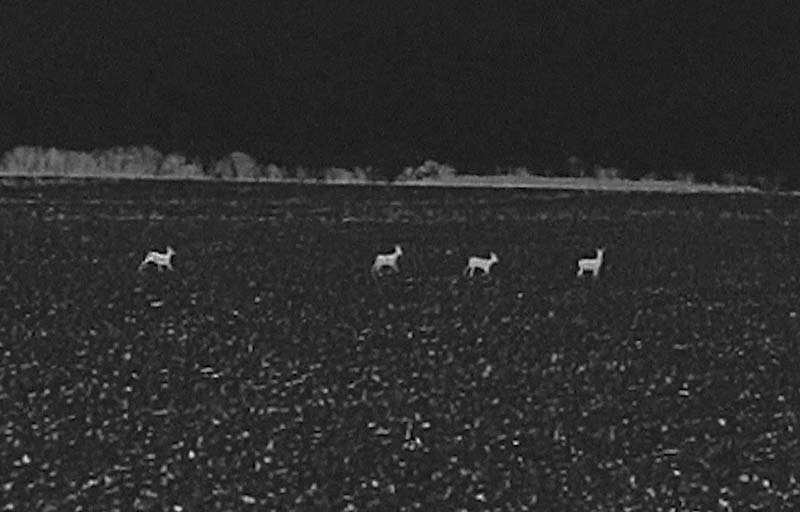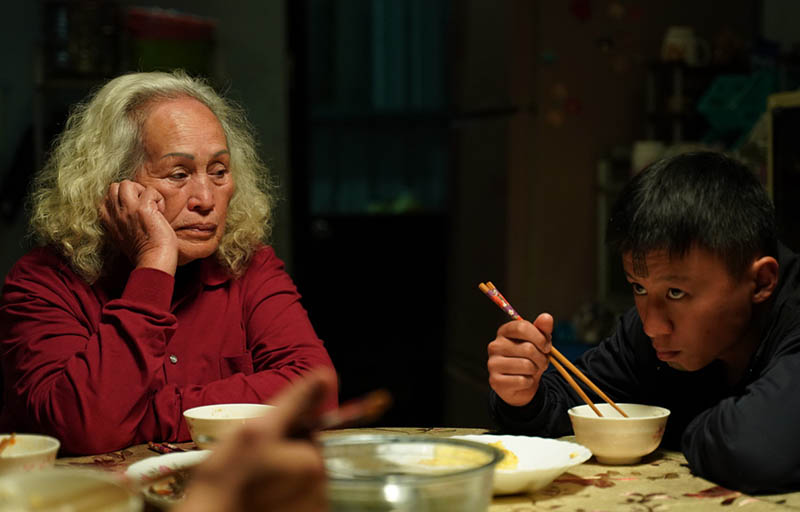16 december
Listening Nearby,
Through Soils and Seas
Asian Movie Night Seasonal Festival - Winter 2023

"Asian Movie Night Winter edition 'Listening Nearby, Through Soils and Seas,' is curated by Akvilė Šlėgerytė and HSIEH I-Hsuan. We are very happy to present an in-depth program with film screenings, performance-workshop and discussion, focused on Asian indigenous cosmologies, knowledge, and struggle. We curated a selection of films exclusively crafted by indigenous filmmakers or centered around indigenous cultural themes.
In our program, the concept of 'indigenous' transcends a mere ethnic-based approach. Instead, we want to deepen the understanding of diverse ways of livings, foster connections between humans and non-humans, reevaluate conventional notions of time and space, engage in critical reflections on modernity and coloniality, and the interpersonal and interspecies relationships they give rise to.
Inspired by Trinh T. Minh-ha and Fileona Dkhar, with Listening Nearby, Through Soils and Seas, we hope, not to speak about, for or over, but to listen nearby, to learn from and with nature, to explore and share how multiplicities can weave relations and coexist harmoniously.
Listening Nearby, Through Soils and Seas will be also screened in Limestone Books, Maastricht (08.12), WORM Rotterdam (10.12) and Focus Arnhem (19.12).
In Cavia we will have two screenings, first, at 17:00, collection of shorts Garden Amidst the Flame (2022); Ancestral Echoes (2022) and Wells of Despair (2023). Later, at 19:00, feature film Gaga (2022) by Laha Mebow.
Screenings are ticketed separately."
Zaterdag 16 december, 17:00
SPECIAL
Listening Nearby, Through Soils and Seas:
Garden Amidst the Flame
Natasha Tontey|2022|Indonesia|27' | EN subs

Garden Amidst the Flame is a coming-of-age story that delves into the fantasies of a group of young Minahasan girls, set against the backdrop of the rapidly changing social and economic context of northern Sulawesi Island in Indonesia. While researching the Christian-majority Minahasa (or Manado) culture, Natasha Tontey participated in the Karai ritual, which bestows Minahasan warriors with invincibility. Drawing from the artist's experience with Karai, the film seeks to adopt a queer perspective on gender, youth, and ecology. It delicately balances playfulness with disarming naivety, blending cultural traditions (animism meets the Spice Girls), and aims to challenge traditional gender roles and masculinity in Minahasan society.
Natasha Tontey is a Minahasan artist based between Jakarta and Yogyakarta. Her artistic practice primarily explores the fictional narratives of history and myths surrounding 'manufactured fear.' She observes the possibilities of alternative futures, not from the perspective of major and established institutions but as a subtle and personal struggle of marginalized entities and beings. Her recent exhibitions include a solo show at Auto Italia, London, UK (2022), as well as selected group shows and screenings at the 57th Karlovy Vary International Film Festival (2023), Singapore Biennale (2022), De Stroom Den Haag (2022), and Leeum Museum of Art, Seoul, Korea (2022).
+
Ancestral Echoes
Fileona Endoxa Dkhar|2022|India (Khasi), NL | 14'

Landscapes are legacies of the places we inherit as home. An indigenous Khasi voice, my voice speaks about the Khasi hill tracks, of the past and the present. In the past, spirits dwelt here. In the present, there are ancestral echoes. Echoes of past belief and error. For the landscape exists, cut up and burnt, as legacy nonetheless.
Fileona Endoxa Dkhar is a Khasi visual artist. Working with themes of ecology, identity and mythology, her work desires to (borrowing words from Trinh T. Minh-ha) not “speak about” identity but to “speak nearby. Her research involves textual and visual elements, that are presented as performances, videos or audio-visual installations.
+
Wells of Despair
Sata Taas Collective|2023|NL, Russia (Sakha)|20' | EN subs

Wells of Despair explores the mechanisms of power that have historically and continue to undermine forms of connectedness by suppressing indigenous knowledge systems. Fueled by extractive practices, the land is warped and transformed into a commodity, erasing indigenous worlds through the extinction of traditional ways of life. Sata Taas Collective reflects on the loss of indigenous culture and knowledge systems in Siberia, as seen through the displacement of artifacts in ethnographic museums. By listening to the voices of this loss, Sata Taas traces the shadows of these displaced artifacts and seeks to understand the ruptured relationships caused by the dominant gaze of power structures.
Sata Taas Collective is a non-tangible network of narratives, memories, dreams, speculative fictions, affects, sensibilities and thoughts. The collective is a constellation of 4 Indigenous artists and cultural practitioners from the Sakha Sire and centers around the idea of revitalizing Indigenous ontologies of relationality. Unfolding in the form of temporal-spatial encounters of communal learning, healing, and worlding, sata taas seeks to nurture kinship, solidarity, and exchange among communities beyond the politics of nation-state borders.
Zaterdag 16 december, 19:00
SPECIAL
Listening Nearby, Through Soils and Seas:
Gaga 哈勇家
Laha Mebow|2022|Taiwan|112' | EN subs

Hayung's family resides in the mist-covered highlands of eastern Taiwan in the fall. Throughout his life, Hayung practices ‘GAGA', the Atayal people's belief system and way of life. However, after his passing, his sons seem to deviate from the ancestral teachings and become entangled in local politics. Ha-yung's eldest son, Pasang, joins an election campaign despite opposition from his family, which affects the second son, a farmer. After the election campaign, the entire family teeters on the verge of falling apart. As the snow melts, new lives emerge. Can the family stay together and overcome the crisis?
Gaga is the latest feature film in Laha Mebow's 'Atayal Trilogy' and marks her as Taiwan's first indigenous filmmaker who won the best director at the Golden Horse Awards. The film offers a rare and intimate glimpse into the Atayal tribe. Laha's directorial style immediately evokes the work of Japanese masters like Ozu or Kore-eda and Taiwanese new wave director HOU Hsiao-hsien. The film weaves a complex tapestry of drama across three generations, featuring a tumultuous mayoral election, tribal conspiracies, risk-reward gambles, unexpected visitors, and other emotionally charged life challenges, all imbued with divinely tragicomic undertones.
Laha Mebow 陳潔瑤 is an awarded Atayal filmmaker from Nan'ao, Yilan, Taiwan. She had been an assistant director for Taiwanese New Wave directors, including TSAI Ming-liang and CHANG Tso-chi. Laha Mebow has also served as a producer and director at Taiwan Indigenous Television and Da-Ai Television. With extensive experience in the television and film industry, she is the first female indigenous filmmaker in Taiwan to work on fictional films. She also received recognition as one of the '23rd Taiwan Top Ten Outstanding Young Women' for her contributions to promoting aboriginal culture and international exchange.
